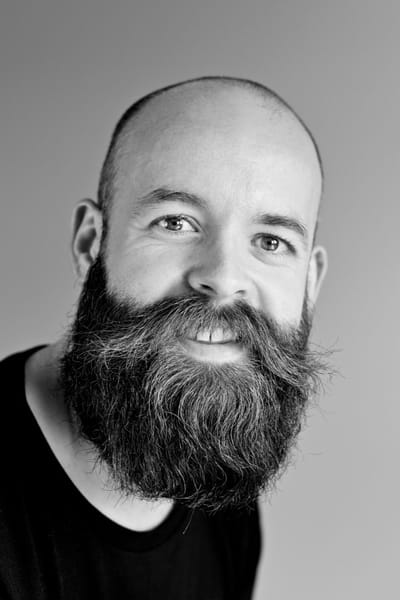Case Study Two — Get your life organized with Second Brain

The Modern Knowledge Worker's Dilemma
In today's information age, knowledge workers are inundated with a never-ending stream of data, ideas, and inputs from multiple sources. Emails, documents, websites, podcasts, books - the list is endless. Trying to keep it all organized and easily accessible when needed is an immense challenge.
The human brain alone cannot efficiently process and synthesize all of this information into an organized, retrievable system. We need external tools and techniques to augment our natural cognitive abilities. This is where the concept of a "Second Brain" becomes invaluable.
What is a Second Brain?
A Second Brain is a personal knowledge management system that acts as an extension of your mind. It's a centralized digital repository where you can capture, organize, and connect all the valuable information, ideas, and insights you encounter in your daily workflow.
The core principles are:
- Make things concrete by writing them down
- Organize information for actionability
- Cultivate a habit of continuously capturing and maintaining your Second Brain
"The trick is to keep the ideas concrete — to associate them with some reality you can capture on paper or in code."
— Richard Feynman
By externalizing our insights and ideas into a well-structured knowledgebase, we free up precious mental bandwidth. We no longer have to rely solely on our flawed memories to recall important pieces of information. Our Second Brain becomes a force multiplier for our productivity and creativity.
My Journey with Notion
After struggling for years with various apps and techniques to organize my digital life, I finally found a solution that stuck - Notion. This powerful and flexible workspace allowed me to build a robust Second Brain tailored to my unique needs and workflow.
I started by identifying the core components: a inbox for rapidly capturing new inputs, areas for developing ideas through writing, databases for managing projects and areas of responsibility, and a system for resurfacing my best ideas through spaced repetition.
Over time, through relentless tweaking and iteration, my Second Brain gradually evolved into a finely-tuned personal knowledge engine. No longer did important emails, documents, or insights get lost in the digital ether. Everything was carefully cataloged and cross-linked for easy retrieval and ideation.
The true power, however, came from the compounding effects of diligently maintaining my Second Brain over months and years. As my knowledgebase grew richer and more interconnected, insights that once seemed disparate started forming deep conceptual connections. My creativity flourished as I could seamlessly combine ideas from multiple domains. Roadblocks that previously seemed insurmountable were quickly overcome by tapping into relevant knowledge and experiences from my past.
Sharing the System
Buoyed by the transformative impact of my Second Brain, I felt compelled to spread the methodology to others struggling with information overload. I decided to open-source my entire Notion system as a template, allowing anyone to easily replicate my setup with just a few clicks.
The response from the community was overwhelmingly positive. Knowledge workers from all walks of life - entrepreneurs, students, creatives, executives - embraced the concept wholeheartedly. Many reported feeling an immediate sense of clarity and control over their digital lives.
But it wasn't just about providing a ready-made solution; the true value came from educating people on the philosophy and principles behind an effective Second Brain. Through workshops, blog posts, and one-on-one coaching, I helped individuals develop the crucial habits and mindsets needed to maintain their own knowledge repositories over the long haul.
Personal Story
The Art Project
One experience that demonstrated the immense value of my Second Brain involved an ambitious art project I took on last year. The project required researching and synthesizing information from dozens of books, academic papers, interviews, and esoteric online forums spanning multiple disciplines like aesthetics, art history, anthropology, and psychology.
Without my Second Brain, this undertaking would have been nearly impossible. I would have inevitably become overwhelmed by the mountain of disconnected information and lost the narrative threads amid the chaos.
But with my knowledge repository, I could systematically capture, organize, and interlink all of the relevant insights as I uncovered them. Ideas that may have seemed unrelated at first gradually revealed rich associations through my web of notes and connections.
When it came time to actually begin creating the artwork, I didn't have to spend countless hours re-reviewing all the source material. All the key concepts, references, and personal reflections were readily accessible and synthesized within my Second Brain.
The final pieces were a seamless blend of disparate fields, interwoven in novel ways that simply would not have been possible without the augmented insight surfaced by my personal knowledge management system.
The Future of Personal Knowledge Management
As the volume of information continues to grow exponentially, the importance of actively cultivating a Second Brain will only increase. Those who can effectively capture and leverage their personal knowledge domains will hold a distinct competitive advantage in an increasingly complex world.
"In the future, more and more folks will subscribe to external data streams to augment their biological thinking process."
— Kevin Kelly
While my Notion template provided an initial framework, the future of personal knowledge management will inevitably involve even more powerful software enabled by advances in artificial intelligence and data science. Imagine having an AI assistant that can automatically analyze and surface relevant connections between your notes based on your unique goals and contexts. Or having your most salient ideas and action items intelligently resurfaced at precisely the moments you need them most.
The possibilities are endless, but the core principle will remain the same - our natural cognitive abilities are limited, but when combined with purpose-built external tools for processing information, our creative potential becomes virtually boundless. Get ahead of the curve and start building your Second Brain today. Your future self will thank you.
